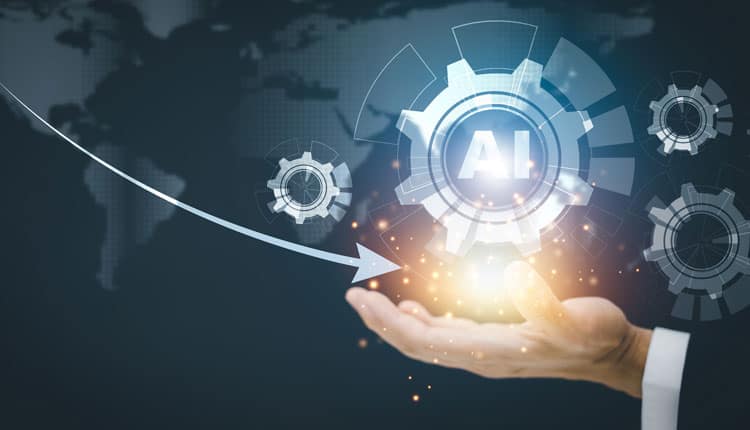From chemicals to energy, artificial intelligence (AI) is already showing just how far it can help achieve global sustainability targets across different industrial sectors. One example is
Petroliam Nasional Berhad (PETRONAS), has committed to achieving net-zero carbon emissions by 2050. For the Malaysian oil and gas multinational, plant reliability is key to achieving its sustainability goals.
PETRONAS identified that early insight into impending equipment failure would enable plant operators to fix equipment proactively before small issues become bigger problems. Proof of concept came via a pilot project in their corporate cloud on Microsoft Azure at four upstream and two downstream units.
Using AVEVA Predictive Analytics, a no-programming required AI power solution for predictive maintenance, the pilot implementation accurately predicted failures so PETRONAS could fix issues beforehand. Over 200 models were deployed in the first year – at a greater scale than would have been possible with human analysts – and the solution correctly identified 51 major early warnings. In the process, it delivered a value of $17.4M (RM73.1M), with 14x ROI.
From the 51 warnings, 12 were high-impact incidents. Resolving these ahead of actual failure reduced unscheduled downtime, reduced wastage, and inefficiencies, and saved PETRONAS millions of dollars.
Besides streamlining day-to-day operations and regular maintenance cycles, several catches helped reduce critical rotating equipment failure and downtime, leading to improved reliability through proactive asset monitoring and maintenance. An alert about an instrumentation fault in a liquid separator, for example, helped the PETRONAS team save $222,000 (RM934,000) in impending asset failure and wasted material. Not only have maintenance costs been reduced but avoiding equipment failures and unplanned shutdowns have helped improve safety records and create a safer workplace.
Now the solution is being rolled out to an additional 10 plants with a total of 150 equipment trains. As Mohd Nazrin Zaini, Custodian (Rotating Equipment), PETRONAS, says, adding value quickly has a faster impact on the company’s sustainability goals.
The experience demonstrates how momentum around green industrial solutions has expanded in recent years, as more organizations realize that sustainability is good for business. The impact of the pandemic, combined with increasing pressure from consumers and regulators, has also played a part in compelling businesses to integrate sustainability into the business ecosystem and adopt strategies that pay off for people and the planet.
But although AI has been the most talked-about new business technology trend, humans have barely scratched the surface of its tremendous potential. As science comes of age, organizations will continue embedding AI-based solutions across their operational value chains to streamline operations, reduce costs, boost efficiencies, and foster resiliency. Gartner expects global AI software revenue to total $62.5 billion in 2022, an increase of 21.3% from 2021.
As science evolves, AI is now set to offer industrial enterprises greater opportunities for efficiency, innovation, and growth. Let’s take a look.
AI gets deeper and broader – with greater interaction
From machine learning to natural language processing, AI is an umbrella term encompassing many cognitive capabilities applied in various ways. Now the different types of AI are being combined within one software environment to deliver a more capable solution. These subfields – each a unique technology – will be deployed together to enhance organizational capability and improve business value.
We see cutting-edge analytics at work in predictive asset optimization, for example, where combining AI and physics-based simulation can predict potential asset failures while providing an optimized set of actions to mitigate losses. As a result, machine downtime and production losses can be eliminated. Over time, these applications will lead to the development of self-healing autonomous machines, potentially saving hundreds of millions of dollars for large industrial businesses along the way.
AI will extend and transform human ability
AI systems are already recognized as a natural partners for human intelligence. We will see this synergy play out over the next few years as the world embraces the concepts behind Industry 5.0. Already, AI models support the human decision with data-led insights that can improve value and sustainability – something AVEVA calls Performance Intelligence. Computers are now doing more of the heavy lifting, even carrying out detailed analyses for their human colleagues. We can expect AI systems to now make humans better at what they do. Repetitive tasks have already been automated away. The next step is to reduce errors by way of improved decision-making parameters and higher efficiency.
AI will enlarge the scope of our jobs and enable us to achieve bigger goals faster by providing us with sophisticated, actionable guidance, strengthening our insight and ability in the process.
Biases will be recognized and eliminated
As humans delegate ever greater volumes of work to machines in an AI-forward world, businesses will need to think about the data they are collecting, and how intelligence models mirror real-world prejudices. Applying AI to biased data can result in and even magnify the impact of improper and unfair decisions. As regulators begin to take notice of these technology biases, companies will begin to embrace responsible AI solutions built on principles such as fairness and transparency resulting in the use of comprehensive and inclusive datasets and better corporate governance.
AVEVA is working on a project where physics-based simulation, combined with AI data models can be used to alleviate AI biases in the industrial world. By introducing simulated real-world processes and pseudo-sensors into an AI model we can significantly improve the outcome in terms of prediction accuracy and bias reduction.
AI will transform how we live and work
The science of AI is only in its infancy, but it has the potential to change the world as we know it. As it shapes every aspect of the value chain, from industrial practices to environmental outcomes, AI could have a much greater impact on the business world than we have witnessed with previous technologies. We are only at the beginning of the AI industrial revolution.



